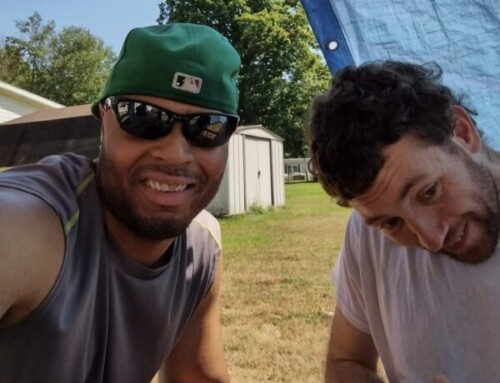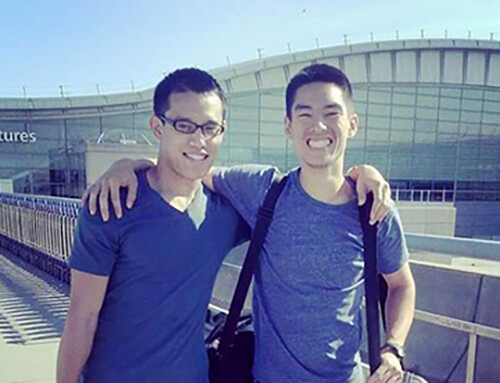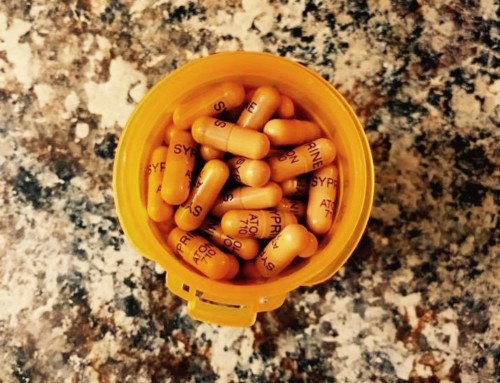The night I drank my first martini would also be my last.
My husband says the martinis saved my life. I’m not sure about that, but by the end of that weekend my life was forever changed. I went from believing I was a healthy 21-year-old who was almost finished with college, to realizing I was in liver failure with an uncertain future.
While there had been signs that something was wrong with me physically months before that fateful night, I had ignored them. Looking back, I can clearly see the telltale signs of Wilson Disease. But when you’re 21, you believe you’re invincible, and the idea that you might have a rare and deadly disease just doesn’t cross your mind.
People often ask how my rare disease was diagnosed. I tell them I was lucky.
That Friday in September 1983, I went out for martinis with my then-boyfriend (now husband) and some friends. It was “two for one night” at a campus bar near the University of Wisconsin. When we left the bar it was still early, but I just wanted to go back to my sorority house and sleep. After two martinis, I didn’t feel right – I hadn’t drunk too much alcohol, but I felt an indescribable fatigue.
The next morning when I looked in the mirror, the whites of my eyes and my skin were both bright yellow. I wondered if martinis just weren’t for me, and I continued getting ready for a party and football game.
Even though I wore sunglasses to hide my yellow eyes, people at the party and football game asked if I felt okay. I couldn’t hide that my fair complexion was now yellow. I assured them — and myself — that I was fine and that perhaps two martinis were too much for me. But by the end of the day, my roommate had convinced me to go to the emergency room. She drove me to the closest ER, which was at the university’s teaching hospital.
This is where I got really lucky.
I walked up to the admissions window of the quiet ER waiting room and waited for the clerk to slide open the glass partition window. She asked what I needed, and I said, “I don’t feel right.” She looked at me, paused and said, “We need to admit you.”
I was shocked to be sitting in a hospital room, and I heard the panic in my mother’s voice when I made a long-distance call home to tell my parents that I was there, and that I didn’t know why.
The next five days are a blur to me. I lost count of how many times I was being stuck with needles as nurses searched for new, useable veins in my arms, hands and feet (yes, my feet!) to draw blood for tests and pump me with bags of fresh frozen plasma (FFP). I had no idea why I was getting FFP at the time, but now I know they give you FFP when your blood won’t clot. My blood wasn’t clotting because I was in liver failure, but none of the tests showed the reason why.
As I answered the medical team’s questions, I realized I had been sick – really sick — for a while. But I hadn’t noticed, and neither had my family or friends closest to me.
Five months earlier, I’d had stomach pains so severe that I missed classes for a week, while I lay in bed curled in a fetal position. My mom had made me an appointment with the family internist in Milwaukee, who concluded my stomach pain was from drinking bad water during a Spring Break trip to Florida. So, I went back to college, struggled through my finals, and ended the semester on academic probation.
That summer, I kept making silly mistakes at a job where I had been a stellar performer the summer before. I slept excessively on weekends. I felt myself becoming moody. By fall semester I had swelling in my legs, I bled when I tied the laces of my sandals around my ankles, and my urine turned dark.
What did I do about it? Nothing. I didn’t even tell anyone. Like most people who develop unusual symptoms, I figured these strange things would go away. But they wouldn’t — until I got a diagnosis. I didn’t know these symptoms made me a textbook case for liver failure.
Please click here to read the rest of my diagnosis story.




